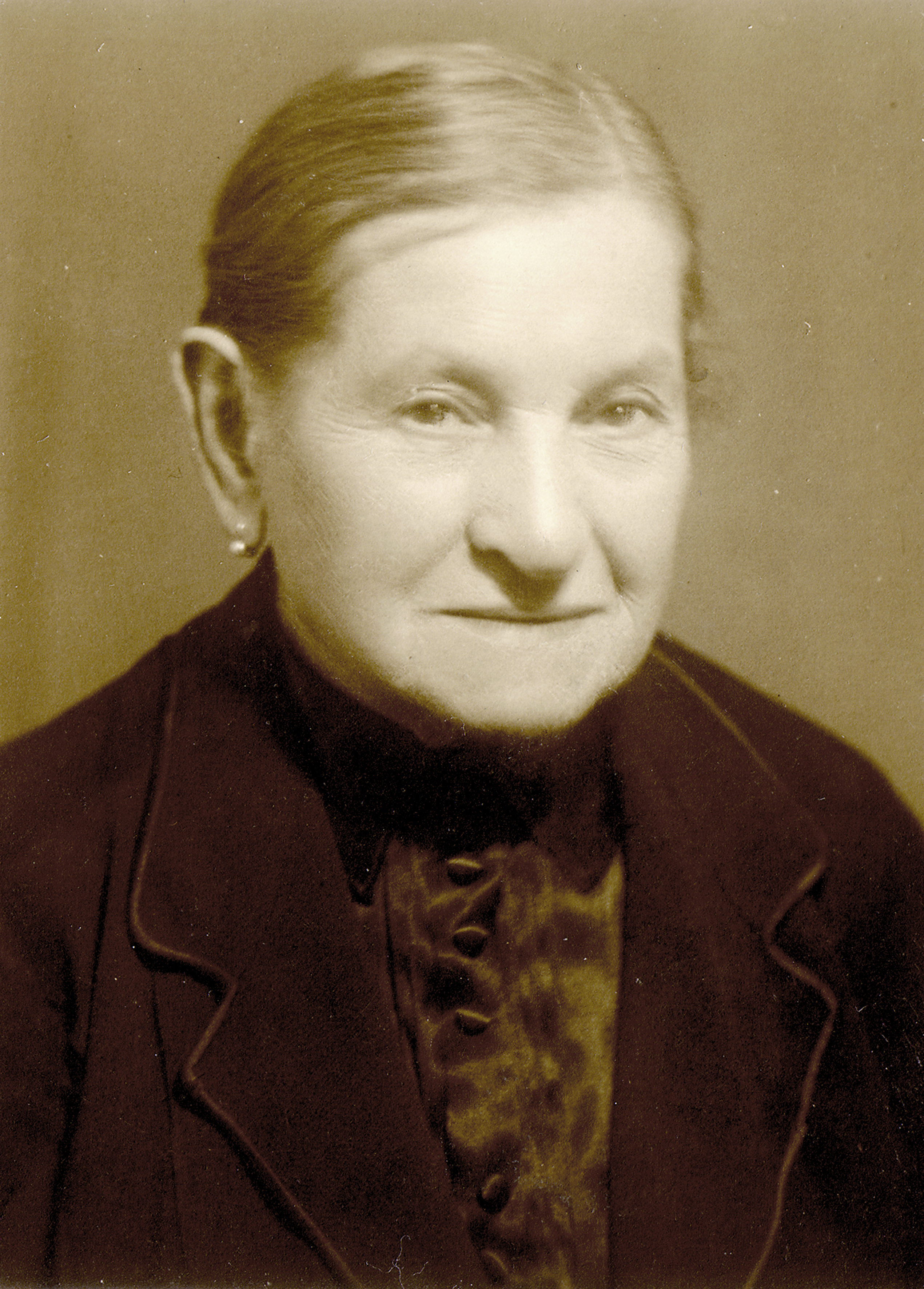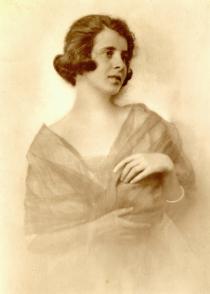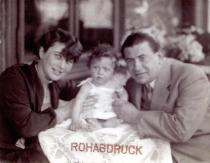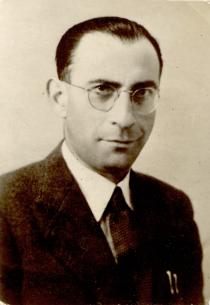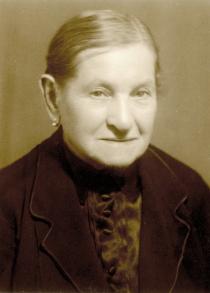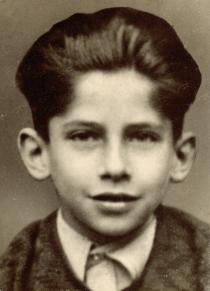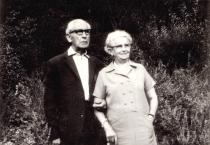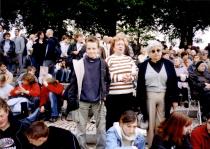This photograph was taken in Brno in 1939. It shows my grandmother on my father's side, Jana Burgmann, nee Schoen.
My grandmother was small and plump and always dressed well. She wore long skirts typical for those pre-war times, a decorative white collar and a hat. I don't think she wore hats for religious reasons, for she wasn't a religious Jew. Grandma's hair was of very poor quality. Sometimes she would take us grandchildren for walks in the park in Luzanky. While all others had normally arranged hairdos, her hair would be messed up by the wind, so she was always frizzy despite a great number of hairclips with which she tried to tame her hair. My mother told me that when I was born, Grandma stroked my head and said: 'The poor girl is going to be unhappy, because she's got my hair.'
After her husband's death my grandmother moved with her two children to Brno, where living conditions were better. Without any support or financial help she bought a three-bedroom apartment at 3 Orlova Street. She got along well with both her Jewish and non-Jewish neighbors. Grandma was a very hard-working woman. She ran a textiles store from her apartment and sold bedding, underwear, tablecloths, trousseaus and so on. She called it a 'white goods' store. At home she had a servant named Annie who cooked, cleaned and did the shopping. Grandma closed her business before World War II once her two sons moved out and started their own lives.
My grandmother was a very determined and tough woman. She came to Terezin at the age of 70 and everyone admired her tenaciousness. In fact she even volunteered for work. She liked me a lot, she called me her Pipushka. Smaller children in the ghetto had no schooling at all. Despite this my grandmother tried to give me at least some elementary education. Usually we sat on a bench in the park, Grandma taught me how to count and we would read from Babicka by Bozena Nemcova. I have that book to this day as a remembrance.
My grandmother had problems with her gall bladder already before World War II. In those days a gall bladder operation was unthinkable, doctors prescribed a special diet. Of course, in Terezin that was impossible. Her health gradually got worse and she ended up in hospital. I also became ill at that time, so I was unfortunately a witness to her dying. Just before her dying breath, the nurse threw me out and said that I should wait outside for my mother, who sat by my grandmother's death bed up to the end. Grandmother died in 1943. Her funeral was very undignified. It seemed to me as if the Germans were making fun of it. It wasn't really a proper Jewish funeral, only a sort of farewell. In the barracks courtyard stood the rabbi, behind him my parents. After the ceremony her body was taken away to the crematorium, burnt, and the ashes ended up somewhere in the Ohra River.
